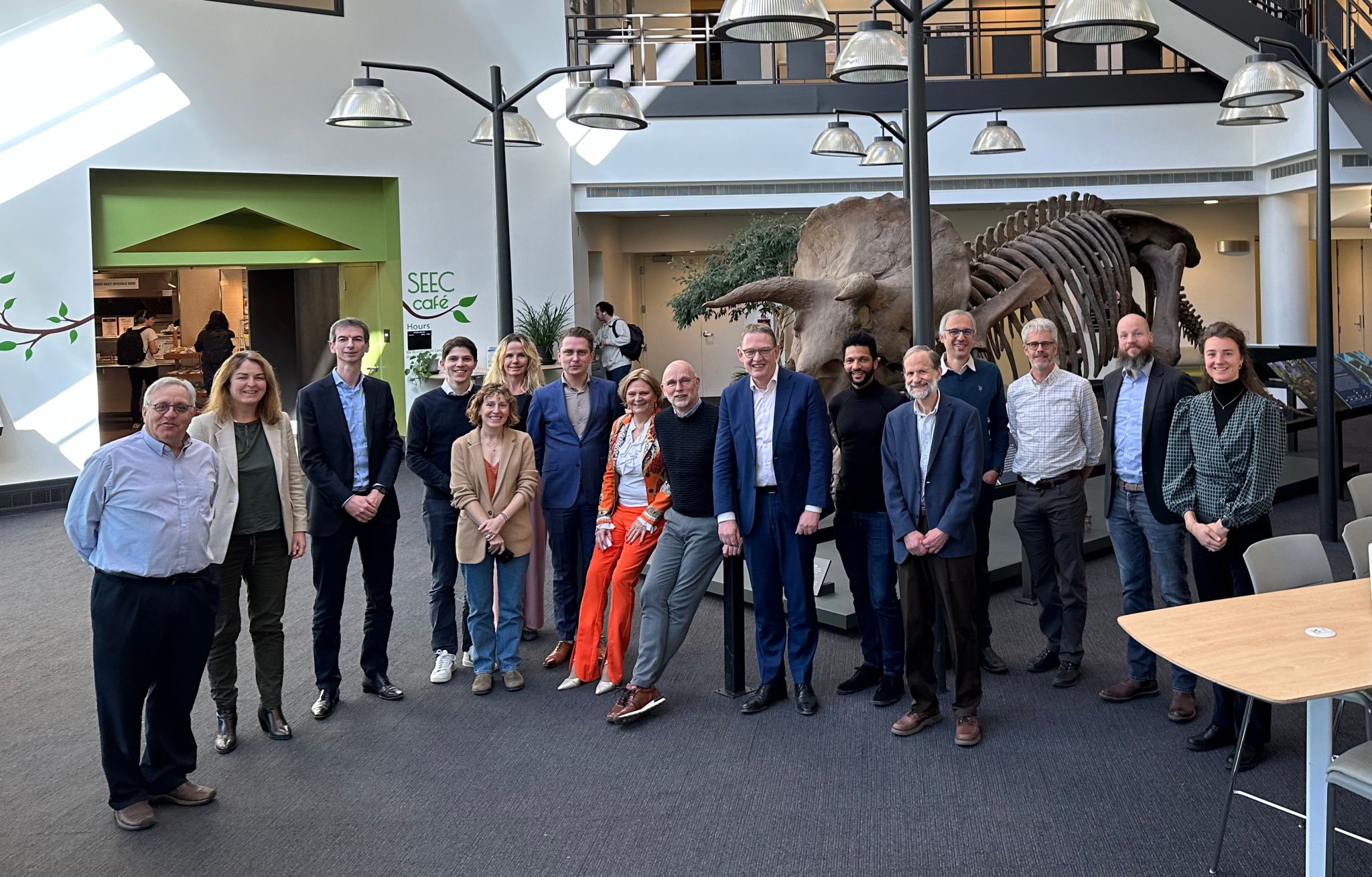The US and the Netherlands take the lead on a sustainable and circular chemical industry - United States
The US and the Netherlands take the lead on a sustainable and circular chemical industry
The chemical industry, often associated with laboratories and complex equations, is present in almost every part of the everyday life, from batteries to solar panels to plastics.
The Netherlands has an ambitious target to achieve circularity by 2050, and chemicals play a pivotal role to help realize these ambitions.
This is why ChemistryNL, the public-private initiative representing the chemical sector in the Netherlands, is bringing the sector to the US this week for an innovation mission on circular advanced and critical materials.
“We believe that the US is leading in the solutions that are needed for a circular economy on critical materials,” says Jacqueline Vaessen, chair of ChemistryNL and mission leader. “The Dutch and American chemistry sectors could cooperate in developing new processes in order to refine and recycle various types of materials which become more and more relevant.”
The delegation will make stops in Colorado on January 29-30, Nevada on January 31, and Northern California on February 1-2.
The delegation for this mission consists of representatives of ChemistryNL, TNO, and the University of Groningen. The Ministry of Infrastructure and Water Management and the Ministry of Economic Affairs and Climate Policy also join this mission, two Dutch ministries that play a major role in the Dutch transition toward a circular economy.
The journey toward a climate-neutral and circular economy demands a collaborative effort fueled by innovative policies and programs for critical materials. The landscape is evolving, marked by significant developments, such as the American Inflation Reduction Act and the European Critical Raw Materials Act.
Luc Kikkert, Senior Business Developer Energy Materials Transition at TNO, thinks the urgency for this mission is high: “The outbreak of corona and the war in Ukraine have made it clear in the Western world that we have become too dependent on free international trade flows. Since the challenges posed by this transition are new and extensive, it is important that we exchange knowledge and seek collaboration with our most obvious trading partners.”
The chemical industry in the Netherlands plays a crucial role in the global transition toward a circular advanced and critical materials sector.
The sector turnover was €87 billion, making it one of the leading business sector in the Netherlands. With this, the Netherlands is the fourth largest chemical producer in Europe and 10th worldwide.
Many of the world's largest chemical industries have opened production facilities in the Netherlands. A circular transition in the Netherlands means a circular transition for the entire supply chain.
During the mission, ChemistryNL aims to explore collaborations related to the refining and recycling of advanced and critical materials, particularly those tied to energy materials.
These regions are renowned for their cutting-edge technology and policy research, as well as hands-on experience in piloting new processes by forward-thinking companies.
Vaessen: “This mission offers chances to enhance our connections with American partners. Leveraging a solid base in chemistry and refining, the Netherlands seeks to contribute to the exploration and advancement of innovative technologies. The goal is to secure a supply of less critical materials for next-gen products, boosting strategic autonomy and decreasing dependencies on uncertain imports.”
The program of the mission will pay attention to a variety of aspects, from observing how different states address the issue and shape their policy around to the seeking of information on the initiatives undertaken by universities and research centers.
Examples are visits to the University of Colorado and UC Berkeley, the National Renewable Energy Laboratory in Colorado, and CalRecycle.
Kikkert: “Personally, I am very excited about visiting some pioneering pilot companies in the field of recycling technology, particularly for batteries. We intend to investigate potential collaboration possibilities and explore the chances of these companies establishing themselves in the Netherlands.”
Delegation leader Vaessen wants the mission to result in concrete collaboration between innovation programs in the Netherlands and the US.
“We want to position the Netherlands as an interesting cooperation partner for companies. We have a number of relevant growth fund programs and cooperation with the US can be developed with the help of this mission. The mission should result in knowledge exchange between governments in California, Colorado, and the Netherlands.”

